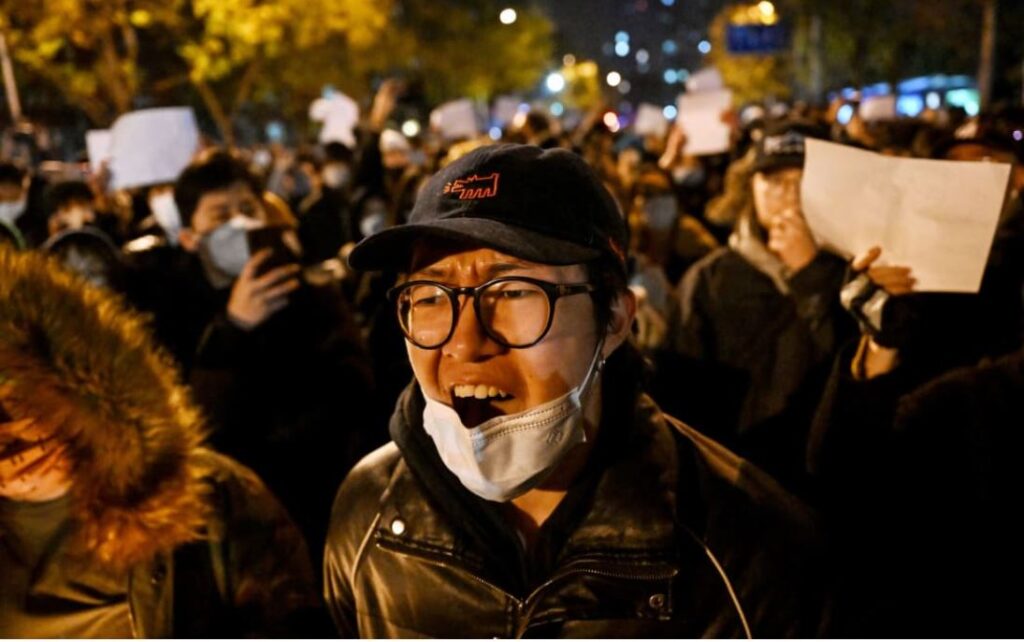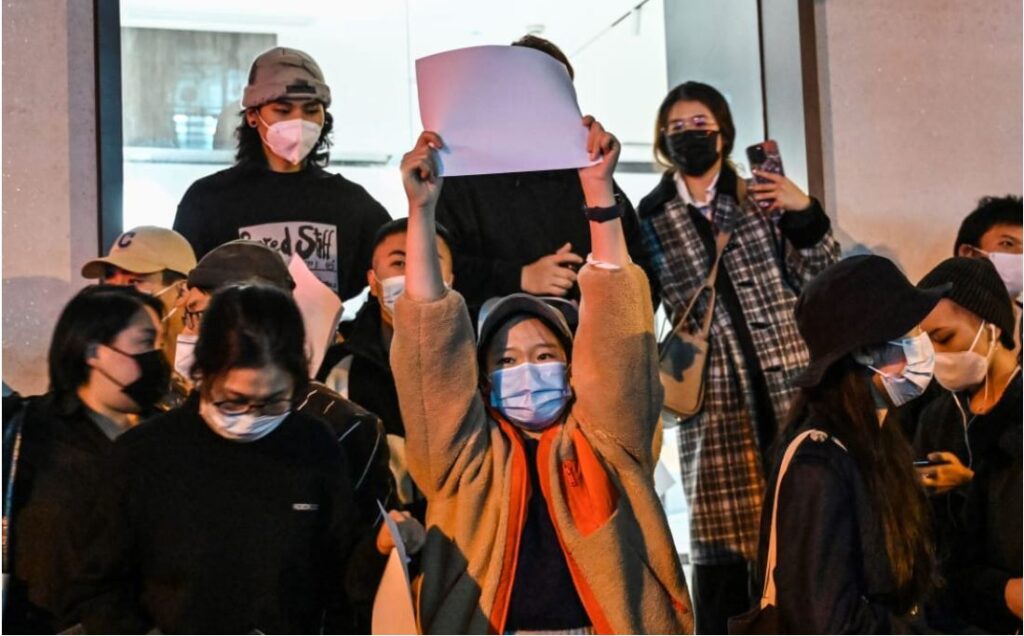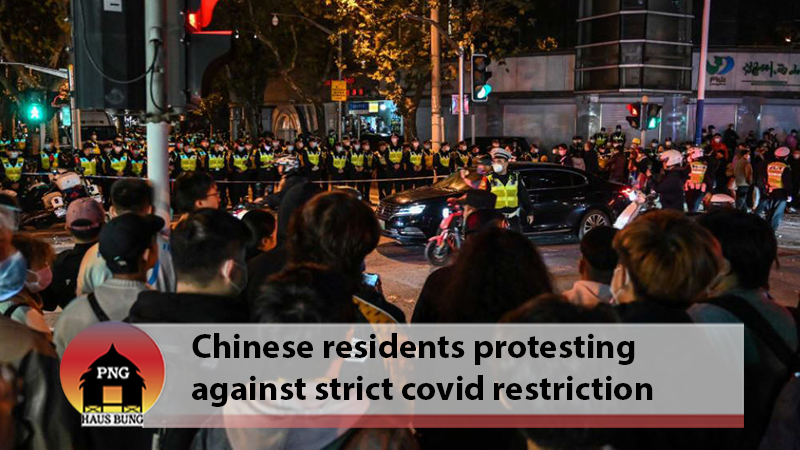Protests against strict Covid measures in China have spilled into a second night and spread to the biggest cities.
Demonstrators gathered in the capital Beijing and the financial hub Shanghai.
Many held up blank pieces of paper to express their discontent and acknowledge the censorship. Some have, however, gone as far as calling for President Xi Jinping to step down.
Millions have been affected by nearly three years of mass testing, quarantines and snap lockdowns.
It is very unusual for people to publicly vent their anger at Communist Party leaders in China, where any direct government criticism can result in harsh penalties.
The police have largely allowed the rallies to continue, but in Shanghai officers arrested several people and cordoned off streets on Sunday.

Hundreds of people gathered on the banks of a river in the capital Beijing for several hours on Sunday, singing the national anthem and listening to speeches.
Earlier in Beijing’s prestigious Tsinghua University, dozens held a peaceful protest against Covid restrictions and sung the national anthem, according to pictures and video posted on social media.
Protests also took place during the day in the south-western city of Chengdu and central cities of Xi’an and also Wuhan – where the Covid outbreak originated nearly three years ago.
Videos posted on social media appear to show hundreds of Wuhan residents taking to the streets, with some protesters pictured knocking down barricades and smashing metal gates.
The latest unrest follows a protest in the north-western city of Urumqi, where lockdown rules were blamed for hampering rescue efforts after a tower block fire in which 10 people died. China’s authorities have denied those claims.
‘Xi Jinping, step down’
In Shanghai – China’s biggest city and a global financial hub – police kept a heavy presence in the area of Wulumuqi Road, where a candlelight vigil the day before turned into protests.
The BBC saw police officers, private security guards and plain-clothed police officers on the streets, confronting protesters who assembled for a second day.
But in the afternoon, hundreds had come back to the same area with blank sheets of paper to hold what appeared to be a silent protest, an eyewitness told the AFP news agency.
During Saturday night’s protest in the city people were heard openly shouting slogans such as “Xi Jinping, step down” and “Communist party, step down”.
Such demands are highly unusual in China.

But the government appears to have drastically underestimated growing discontent towards the zero-Covid approach, a policy inextricably linked to President Xi who recently pledged there would be no swerving from it.
One protester in Shanghai told the BBC that he felt “shocked and a bit excited” to see people out on the streets, calling it the first time he’d seen such large-scale dissent in China.
He said lockdowns made him feel “sad, angry and hopeless”, and had left him unable to see his unwell mother, who was undergoing cancer treatment.
The zero-Covid strategy is the last policy of its kind among the world’s major economies, and is partly due to China’s relatively low vaccination levels and an effort to protect elderly people.
Snap lockdowns have caused anger across the country – and Covid restrictions more broadly have trigged recent violent protests from Zhengzhou to Guangzhou. In spite of the stringent measures, China’s case numbers this week hit all-time records since the pandemic began.
Taking to the streets in numbers and calling for President Xi to step down was thought to be unthinkable not so long ago.
However, after a recent dramatic protest on a Beijing bridge that stunned many, a bar appears to have been set for the expression of more open and sharper dissent.
Others have also chosen to wave the Chinese flag and sing the national anthem – its lyrics espousing revolutionary ideals and urging the people to “rise up, rise up”.
It is a show of patriotism that could also be read as a pointed expression of solidarity with fellow Chinese suffering under the zero-Covid policy – and a call to action.
Source: BBC

